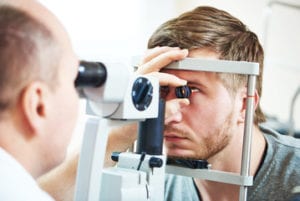
What is Dilation?
Dilated pupils are enlarged pupils. Your eyes naturally dilate when you are in a dark room, or when you go inside after being out in the sunshine without sunglasses. During a comprehensive eye exam, we simulate this widening of the pupils using a safe ocular solution. The difference between our process and the natural dilation that your eyes sometimes do is that our method could leave you a little blurry and light-sensitive for a few hours. For this reason, you will want a friend or loved one to drive you home after your eye exam.
Why would we do this?
Knowing that we may create a slight inconvenience to our patients, why on earth would we recommend dilating the eyes for an exam? It’s simple: we want to see every part of the eye we can. Some of the most concerning eye conditions are quite sneaky, so to speak, showing very little evidence of progression during early stages.
- Glaucoma involves the optic nerve fibers, which transition from the brain to the eyes. A comprehensive exam with dilation allows us to observe these fibers at important points, where cupping may alert us to a potential problem.
- Diabetic retinopathy is one of the leading causes of vision impairment in our country, so we want to visualize symptoms as early as possible. These may include leakage from the tiny blood vessels located in close proximity to the retina, or swelling around that structure. These abnormalities can only be seen when sufficient light is reflected at the back of the eye.
- Age-related macular degeneration, AMD, can be serious if not managed properly. Through the dilated pupil, we have a better opportunity to observe yellow-tinged deposits around the retina, or clumps of pigmentation that indicate changes in the macula.
We care about your long term eye health and vision. To schedule your eye exam in our Ocala office, call (352) 237-8400.




